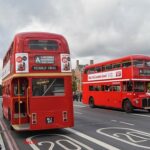– What sparked the recent escalation of violence in the Middle East?
London Police Arrest Protesters at Massive Pro-Palestine March
On [insert date], London police arrested several individuals following a large pro-Palestinian demonstration in central London. The march, which drew thousands of participants, was intended to show support for the people of Palestine amid the recent escalation of violence in the region.
What Happened at the Protest?
The demonstration, organized by various pro-Palestinian groups, was met with a heavy police presence as protesters-marched-calling-for-gaza-ceasefire-in-london-youtube/” title=”Thousands of protesters marched calling for Gaza ceasefire in London – YouTube”>protesters marched through the streets of London. While the majority of participants remained peaceful, some individuals reportedly engaged in acts of aggression, resulting in altercations with law enforcement.
According to eyewitness accounts and video footage, there were instances of property damage and confrontations between protesters and counter-demonstrators. In response, police officers moved in to disperse the crowd and detain those involved in the disturbances.
Reasons for the Protests
The surge in pro-Palestinian demonstrations worldwide follows the recent escalation of violence in the Middle East. Tensions between Israel and Palestine have reignited, leading to a significant loss of life and widespread destruction in the region. The London march was a display of solidarity with the Palestinian people and a call for an end to the violence and occupation.
Response from Authorities
Following the arrests, London authorities released a statement affirming the right to peaceful protest while condemning any form of violence or disorder. The police emphasized the need for public order and safety, particularly in the context of large-scale demonstrations with the potential for unrest.
International Reactions
The events in London have drawn attention from around the world, with various government officials and organizations weighing in on the situation. The incident has sparked debates about freedom of speech, the right to protest, and the appropriate boundaries for expressing political views in public spaces.
Impacts and Aftermath
The aftermath of the protest has sparked discussions around the role of law enforcement in managing large gatherings and ensuring public safety. Additionally, the incident has brought attention to the nuances of political activism and the challenges of navigating contentious issues in a diverse and multicultural city like London.
Continued Advocacy
Despite the arrests and the controversy surrounding the demonstration, supporters of the pro-Palestinian movement continue to advocate for their cause through various channels. This ongoing activism includes online campaigns, grassroots organizing, and community engagement aimed at raising awareness and mobilizing support for the Palestinian people.
Conclusion
The recent events in London underscore the complex interplay between freedom of expression, public order, and the right to protest. While the arrests at the pro-Palestine march have generated considerable debate, they have also served as a catalyst for discussions about the ongoing conflict in the Middle East and the broader implications for global solidarity and activism.
As the situation continues to unfold, it remains to be seen how the events in London will impact the larger discourse surrounding the Israeli-Palestinian conflict and the ways in which different communities engage with these contentious issues.
Eight individuals were detained at a London demonstration in support of Palestine on Saturday, as reported by the Metropolitan Police (Met Police) on their Twitter account. The protest was organized by the Palestine Solidarity Campaign (PSC) and marked the 18th such event held since October 7.
Numerous protesters gathered at Piccadilly Circus and proceeded through central London, resulting in six arrests for various offenses including “racially aggravated Public Order offenses in relation to signs and a gesture,” “criminal damage,” and “assault,” according to the Met Police.
Social media accounts posted videos showing demonstrators carrying signs bearing slogans such as “From the river to the sea, Palestine will be free” and “Exist, resist, return.”
Furthermore, two counter-protesters were apprehended for suspected breach of peace and assaulting police officers. According to reports from The Telegraph, these individuals positioned themselves outside the Park Lane Hotel with a sign stating “Hamas is terrorist,” prompting a temporary halt of the march before they were taken into custody following a physical altercation. Subsequently, they reportedly faced verbal harassment from pro-Palestine supporters.
A separate counter-protest took place on Kensington High Street but was kept apart from pro-Palestine protesters by police officers and barricades. The individuals involved in this demonstration played music like Hurricane by Eden Golan – an Israel Eurovision contestant – while waving flags from the UK, US, and Israel. Additionally, one counter-protester displayed a sign reading “We love life more than Hamas loves death,” while another held a flag bearing the message ”Nova - we will dance again.” A participant told Daily Mail that they were proud to be Jewish and stood behind Israel while denouncing Hamas as terrorists.
The article goes on to talk about how people are preparing for it next year’s festival so that it does not dampen our spirits post what had happened last year during an event at Nova Festival.


